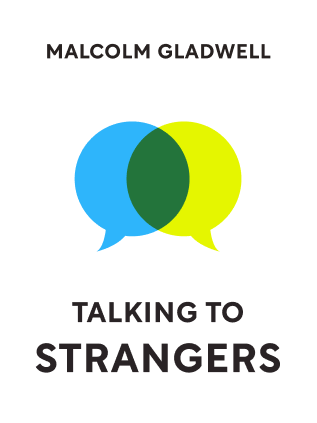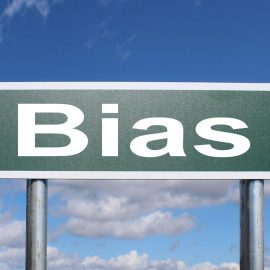

This article is an excerpt from the Shortform book guide to "Talking to Strangers" by Malcolm Gladwell. Shortform has the world's best summaries and analyses of books you should be reading.
Like this article? Sign up for a free trial here .
What are some Talking to Strangers quotes by Malcolm Gladwell? What do these quotes teach us about human communication biases?
Talking to Strangers is an eye-opening book about the impossibility of truly understanding a stranger. These Talking to Strangers quotes by Malcolm Gladwell encapsulate its key messages.
Read these 5 Talking to Strangers quotes by Malcolm Gladwell.
Talking to Strangers Quotes by Malcolm Gladwell
“Defaulting to truth is a problem. It lets spies and con artists roam free.”
According to Malcolm Gladwell, one of the main reasons people get so easily deceived by strangers is because they default to truth. Default to truth is a tendency to assume honesty in others either because deception seems unlikely or because there is not enough evidence pointing to it.
“This is the assumption of transparency in action. We tend to judge people’s honesty based on their demeanor. Well-spoken, confident people with a firm handshake who are friendly and engaging are seen as believable. Nervous, shifty, stammering, uncomfortable people who give windy, convoluted explanations aren’t.”
Apart from defaulting to truth, people are also prone to assuming transparency in others. In other words, they think that people project their true self in their outward demeanor and behavior. According to Gladwell, people are far from transparent.
“We are bad lie detectors in those situations when the person we’re judging is mismatched.”
The assumption of transparency is especially dangerous in interactions where one person is mismatched—when his outward demeanor is mismatched with his internal feelings and intentions.
Mismatching confuses the average person—it is at odds with the natural assumption of transparency. When a liar acts stereotypically honest or an honest person acts stereotypically dishonest, we don’t know how to make sense of it.
“The Holy Fool is a truth-teller because he is an outcast. Those who are not part of existing social hierarchies are free to blurt out inconvenient truths or question things the rest of us take for granted.”
The Russian archetype of the Holy Fool demonstrates the benefits of being able to see the truth of a situation. The Holy Fool is typically an eccentric character, sometimes even a crazy one, who has access to truths that other characters don’t have access to.
For example, in “The Emperor’s New Clothes” by Hans Christian Anderson, the king believes that he has a magic outfit that can only be seen by intelligent people. When he walks down the street, no one is willing to admit that the king is naked, for fear that they’ll be called stupid. Only a small child yells out over the crowd, “The king isn’t wearing anything!” The child is a Holy Fool.
In real life, the Holy Fool is a whistleblower. What sets whistleblowers apart from the rest of society is that they have a better sense of deception and are less likely to default to truth and to believe that liars are rare. Instead, the Holy Fool sees con men around every corner.

———End of Preview———
Like what you just read? Read the rest of the world's best book summary and analysis of Malcolm Gladwell's "Talking to Strangers" at Shortform .
Here's what you'll find in our full Talking to Strangers summary :
- Why we don't understand strangers
- How to talk to strangers in a cautious way so you don't get fooled
- How Hitler deceived so many world leaders






